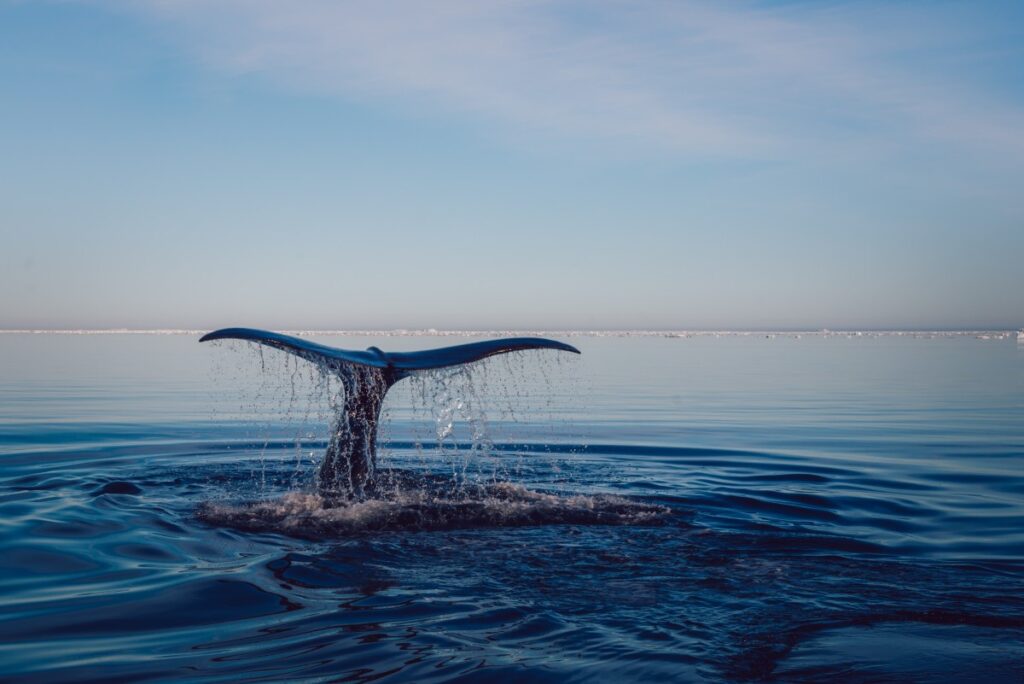The UK Government upheld its long-standing opposition to commercial whaling at the 68th meeting of the International Whaling Commission (IWC) in Slovenia this week, advocating to uphold the moratorium that was agreed 40 years ago.
The United Kingdom also secured further support for the protection of whales, dolphins and porpoises (cetaceans) and has been appointed Chair of the IWC Conservation Committee which carries out vital work to address the wide-ranging challenges facing these species including bycatch, ship strikes, strandings and pollution.
Marine Plastic Pollution and cetaceans
Marine plastic pollution poses a significant issue for cetaceans and the United Kingdom is pleased to have co-sponsored a Resolution on Marine Plastic Pollution, adopted by consensus at the IWC meeting. This will allow the IWC to engage in the UN Environment Assembly process to develop an international legally binding instrument on plastic pollution to drive forward effective measures to prevent or mitigate marine plastic pollution impacts on cetaceans.
International Oceans Minister Scott Mann said: “Whales, and other cetaceans, are awe-inspiring creatures. We must continue to protect these extraordinary animals and bring an end to the unnecessarily cruel practice of commercial whaling globally.
“I’m proud of the leading role we are taking in securing continued support for the IWC and the moratorium on commercial whaling, as well as encouraging countries to recognise the important threat of marine plastic pollution.”
UK opposition to commercial whaling
A news release from the UK Government stated that ‘the United Kingdom is strongly opposed to commercial whaling and continues to call on whaling nations to cease their whaling activities in favour of well-managed, responsible tourism. A founding member of the IWC in 1946, the United Kingdom is proud to have supported the IWC over the last 75 years.
The United Kingdom was disappointed that the IWC did not agree to create a South Atlantic Whale Sanctuary but will continue to push for the conservation of these unique creatures that play a vital role in our wider ecosystem.’
The EIA reported a walk-out of pro-whaling nations on the penultimate day of Plenary session in order to prevent a vote on the establishment of a South Atlantic Whale Sanctuary. The Sanctuary proposal was first tabled more than 20 years ago and required a three-quarters majority to be adopted. It looked likely that there were enough parties attending the meeting for the proposal to finally be adopted – but the deliberate absence of those parties opposing the creation of the sanctuary left the Chair having to rule that there was no quorum in the room and so discussion and decision-making could not proceed.
Resolution seeking to reopen a formal debate on commercial whaling
The Guardian reported that the ban on commercial whaling was in danger after “misleading” resolutions were put forward at the (IWC) meeting. The wildlife protection organisations OceanCare and Humane Society International said proposals by pro-whaling countries, including Antigua and Barbuda, could reverse progress made by the IWC.
The newspaper went on to say that Antigua and Barbuda had submitted a resolution seeking to reopen a formal debate on commercial whaling. It also co-sponsored another resolution with Cambodia, Guinea and the Gambia arguing the fishing practice could contribute to food security and address poverty.
However, the Government of Antigua and Barbuda denied that it gave approval for any of its representatives at the IWC to support moves to lift a ban on whaling. A statement from the government said: “Cabinet has NOT agreed to lift the ban on hunting of whales and is not aware of any statement which suggests otherwise.”
The comment from the government came after reports that Antigua and Barbuda joined Japan and several other countries to propose that the whaling ban be overturned.
